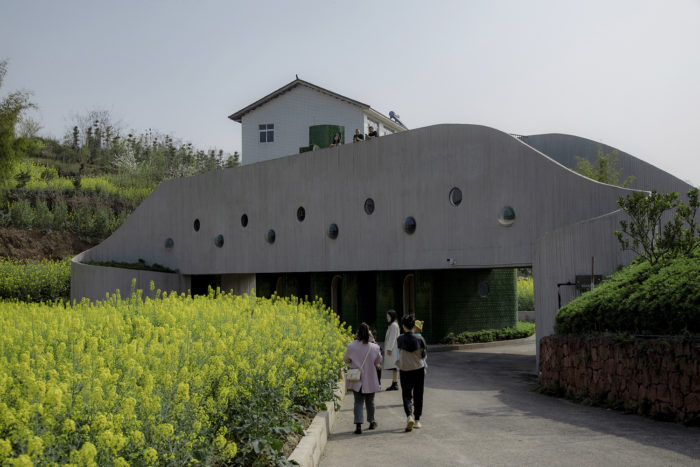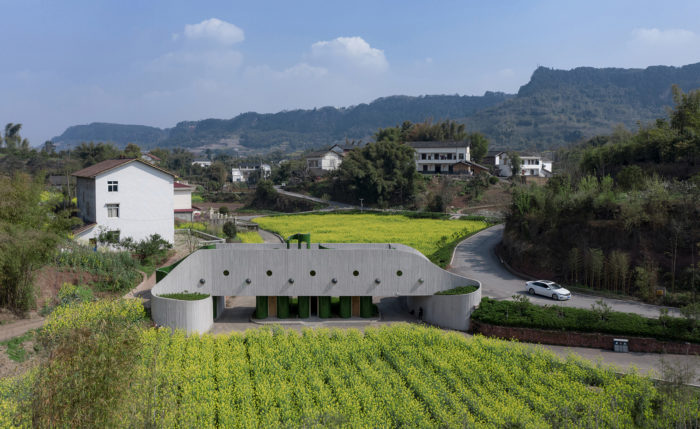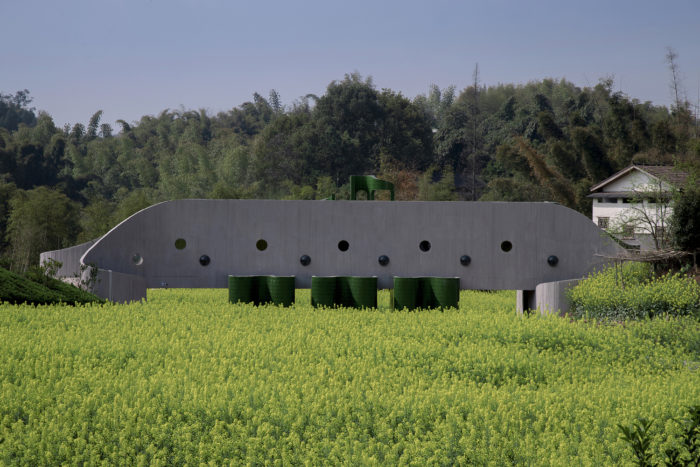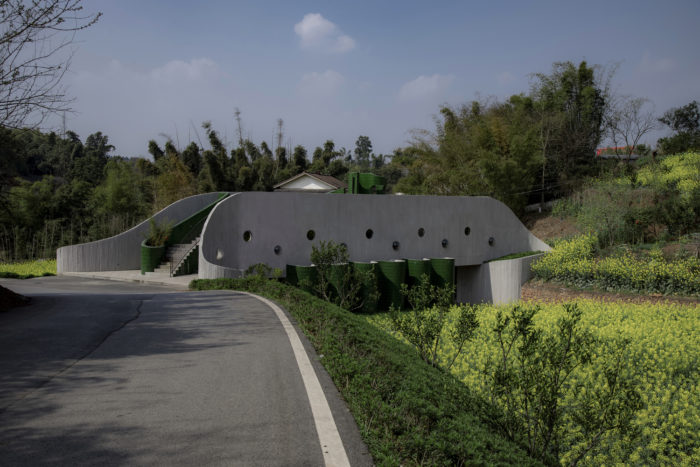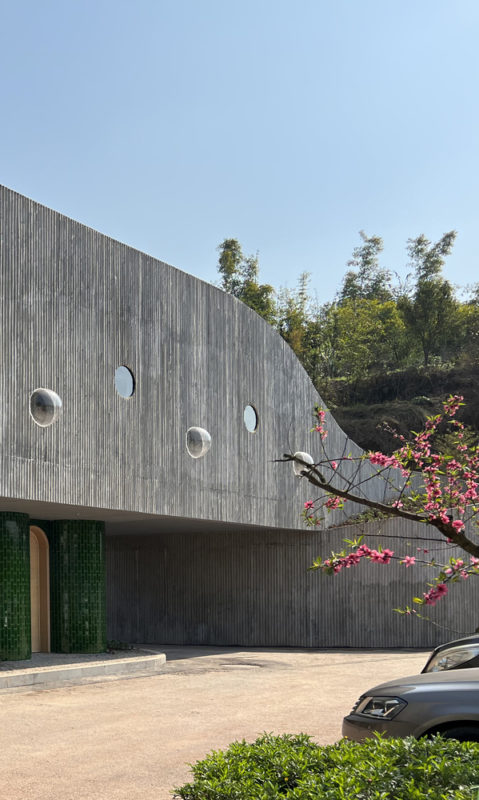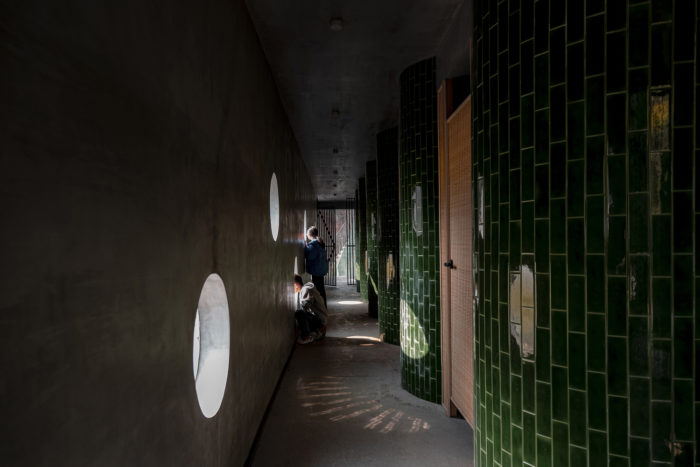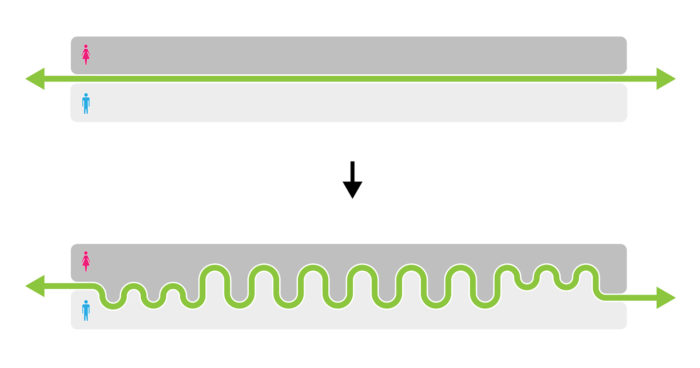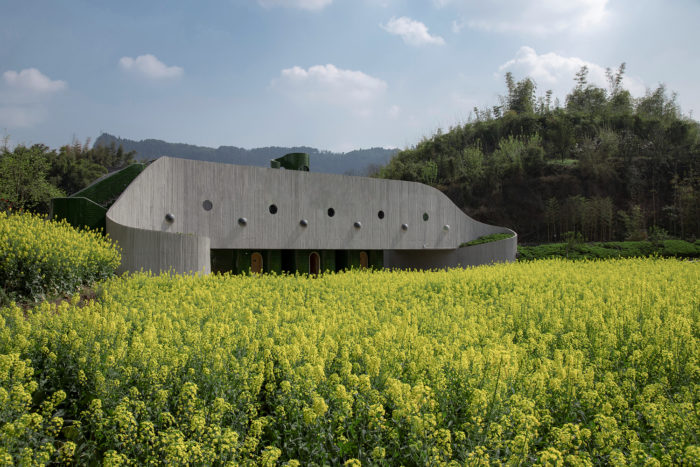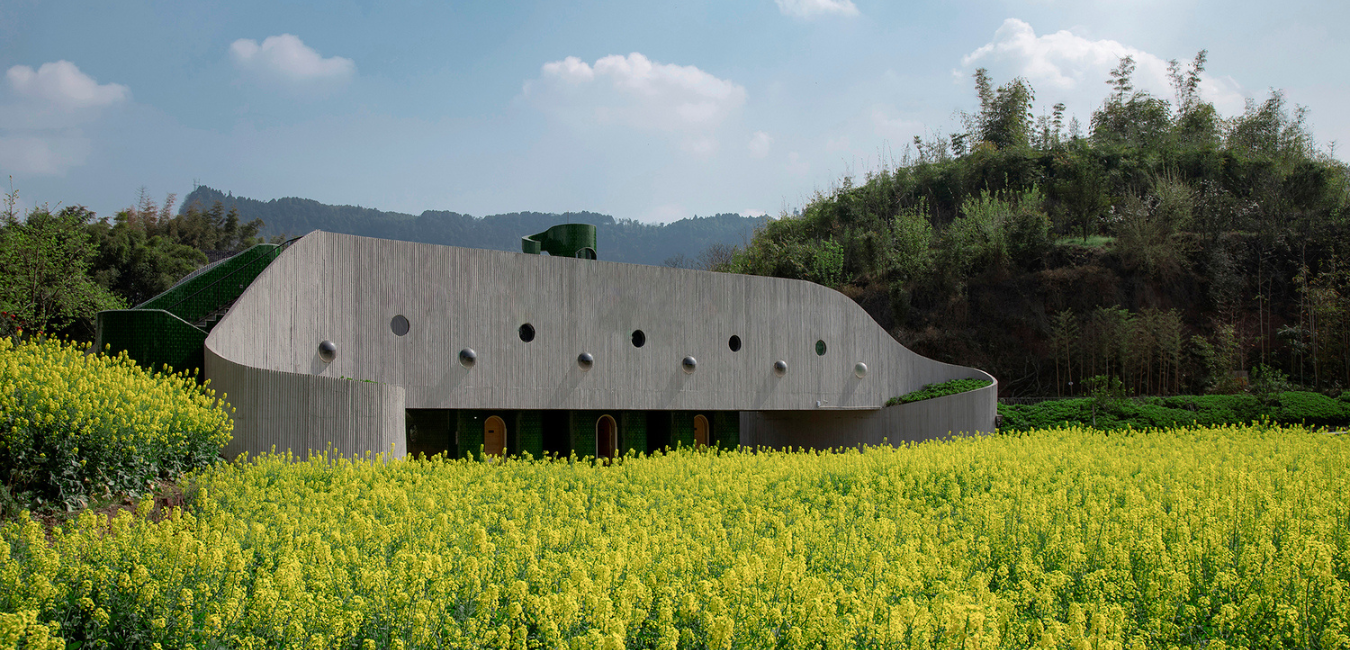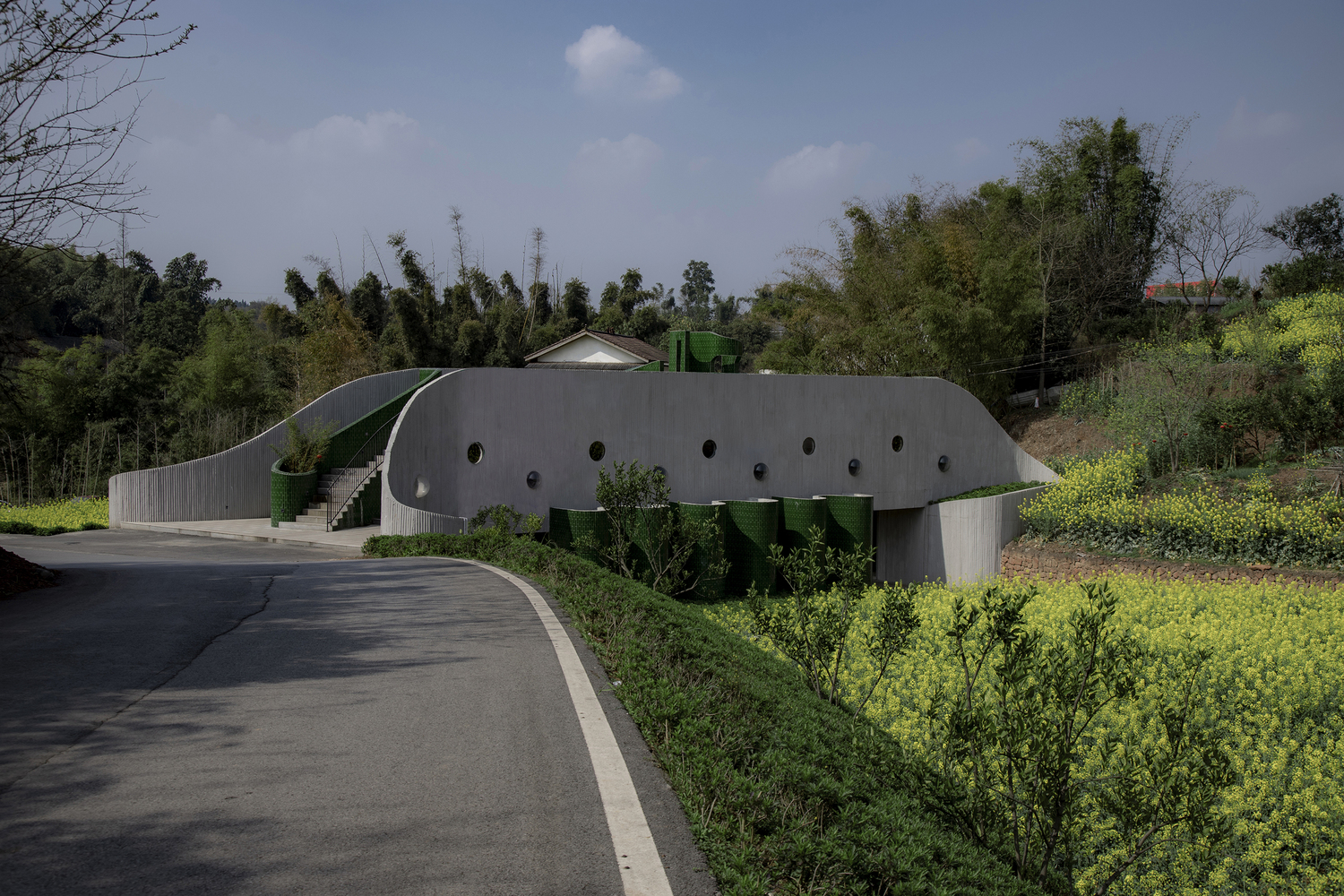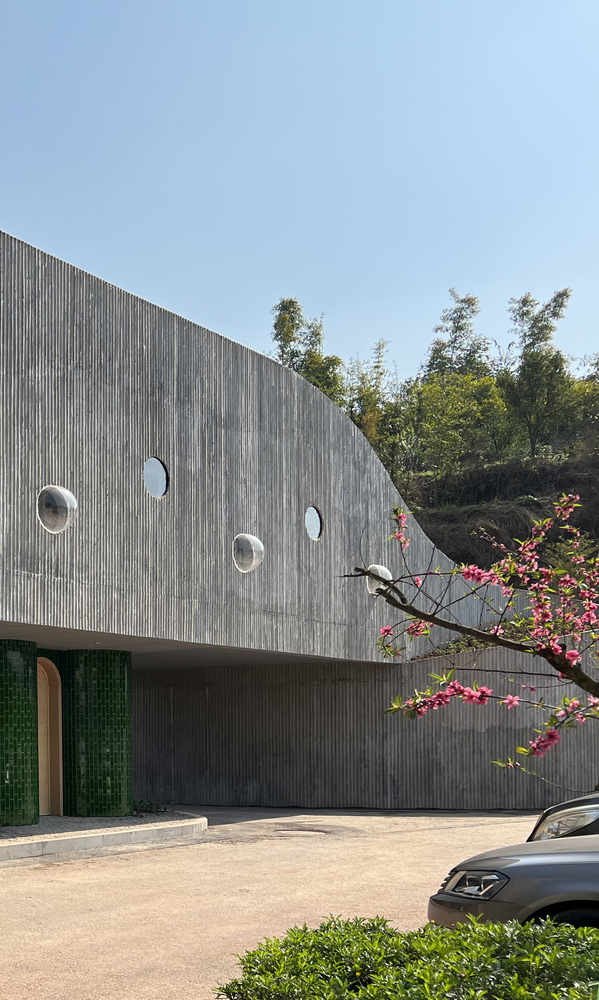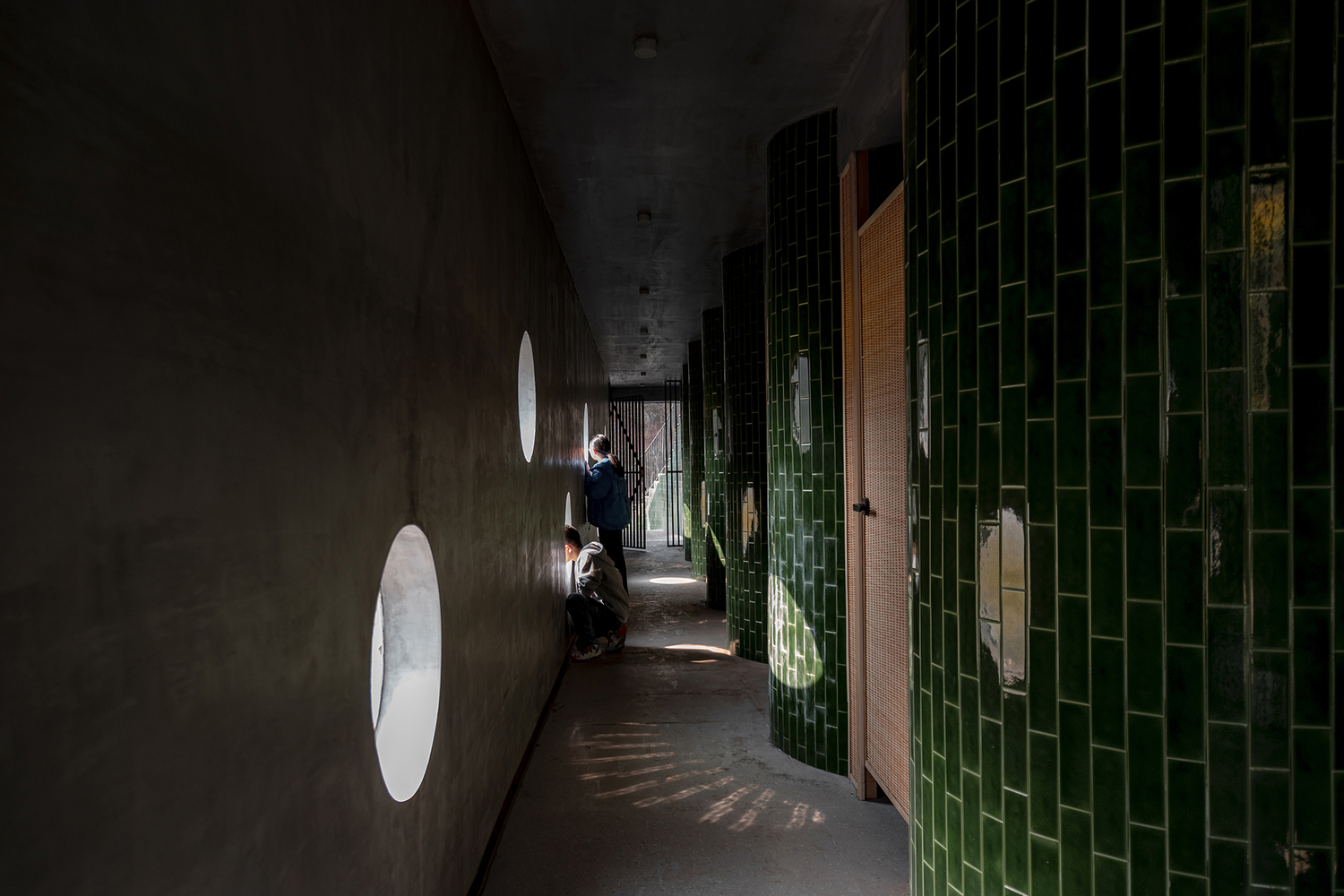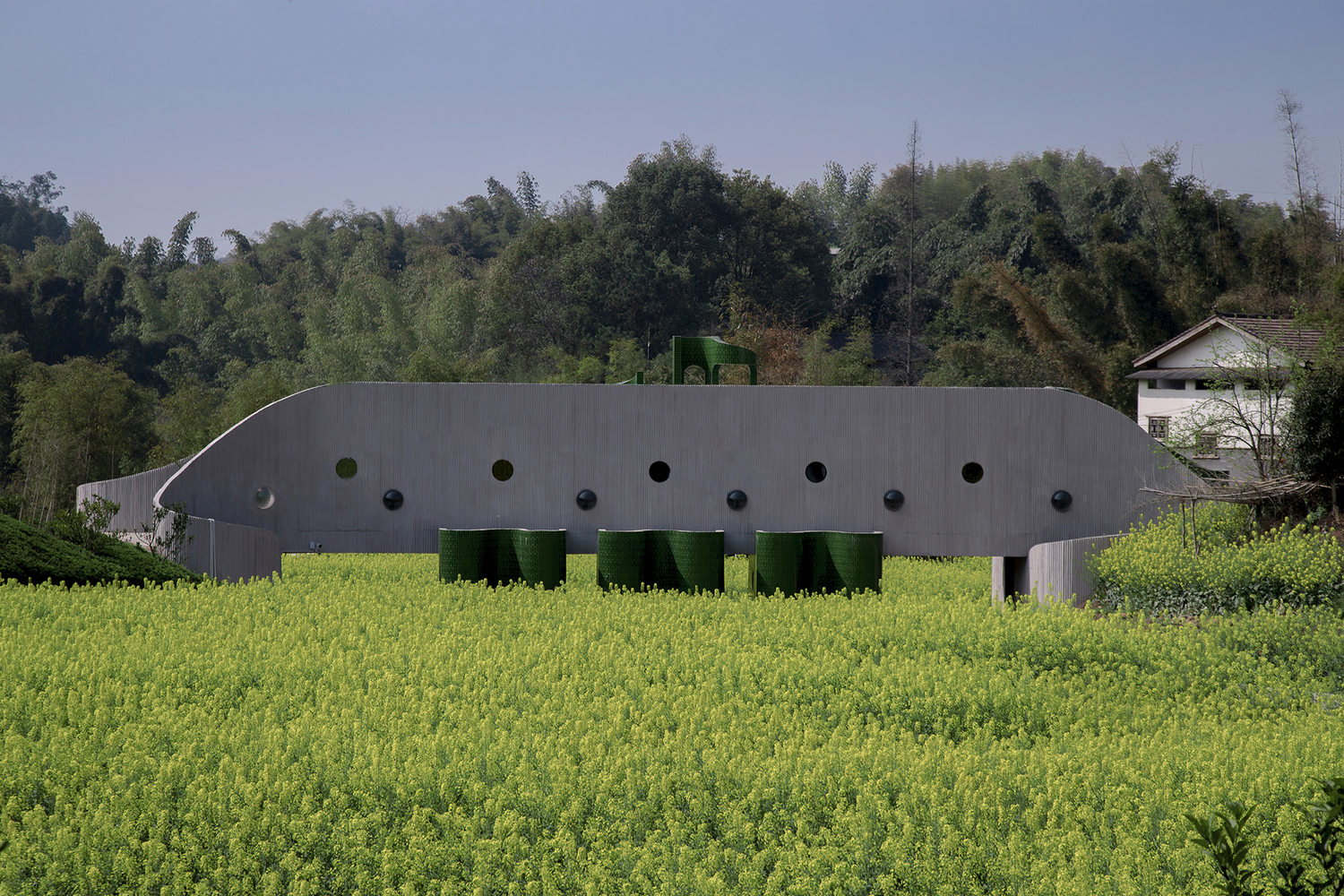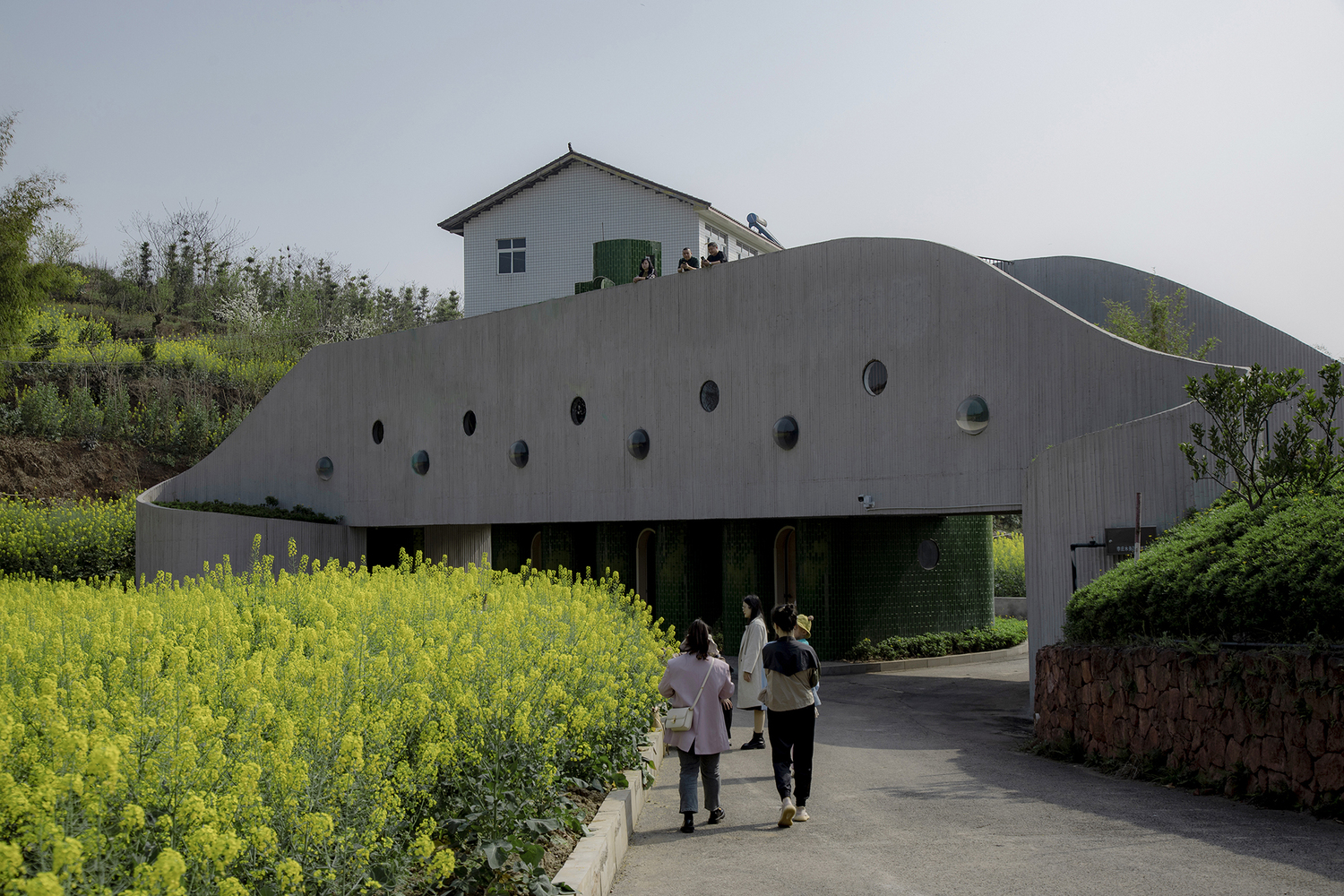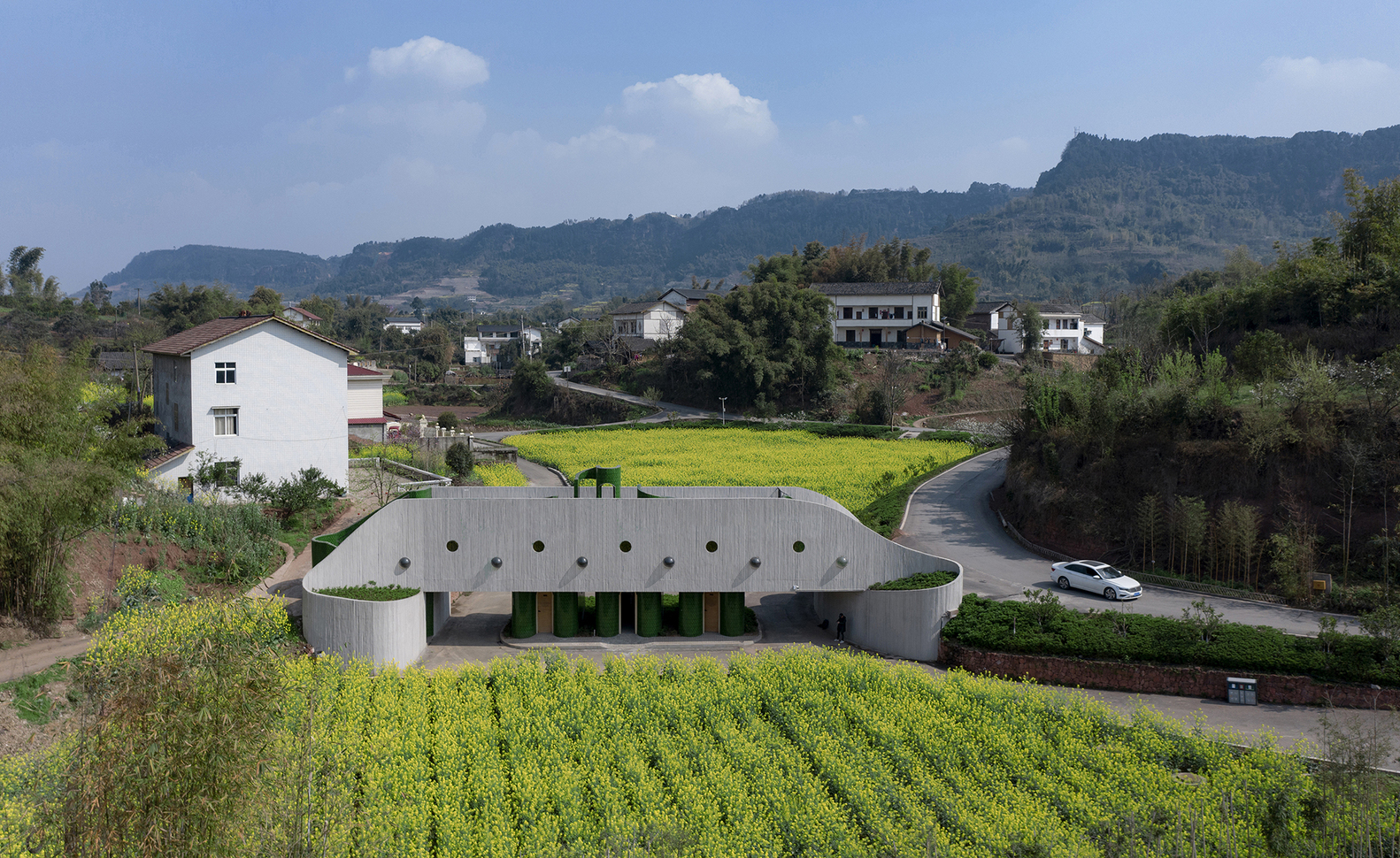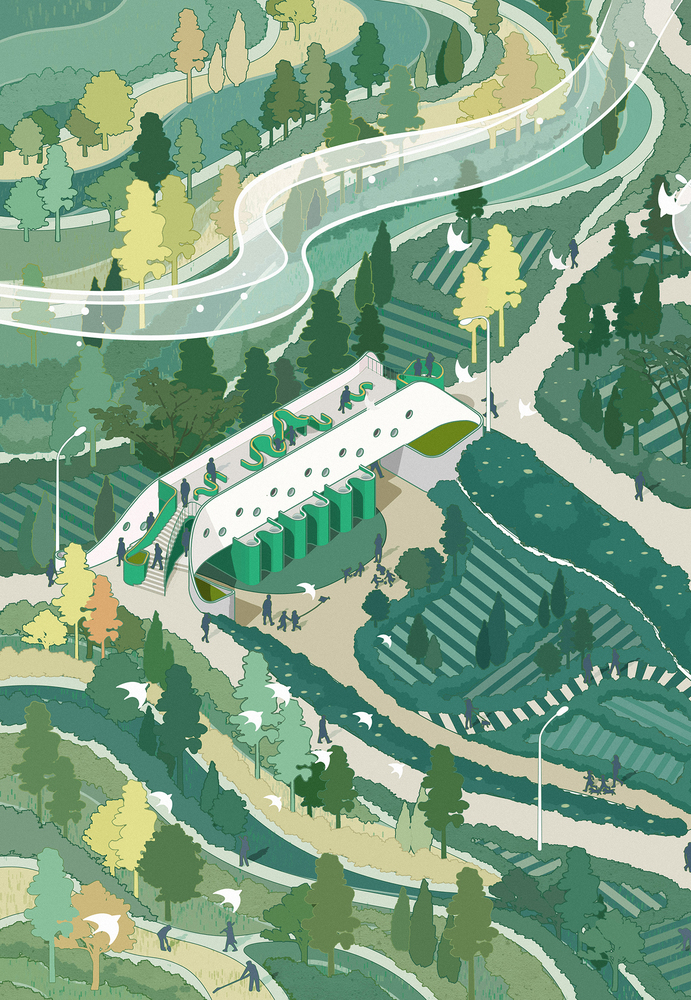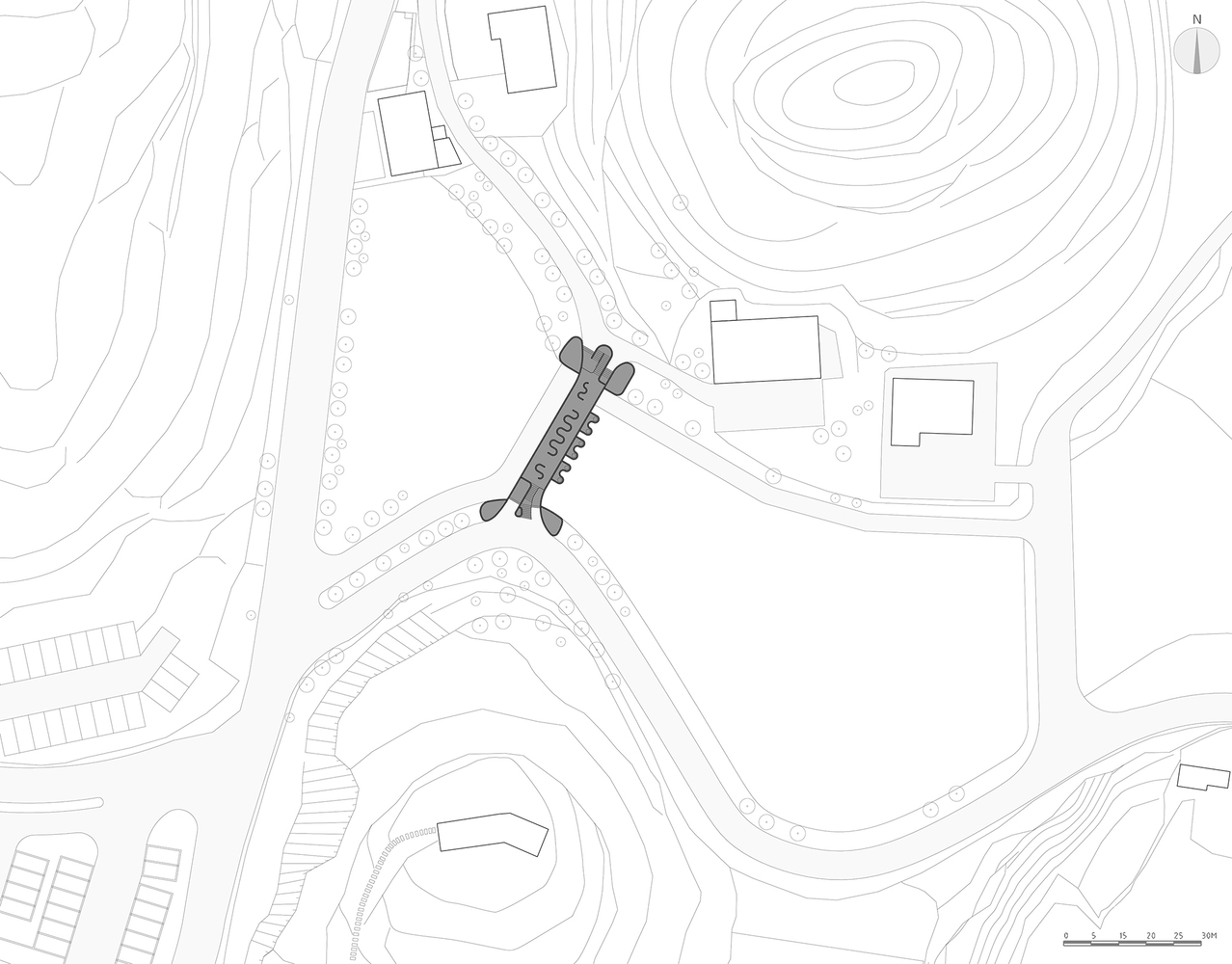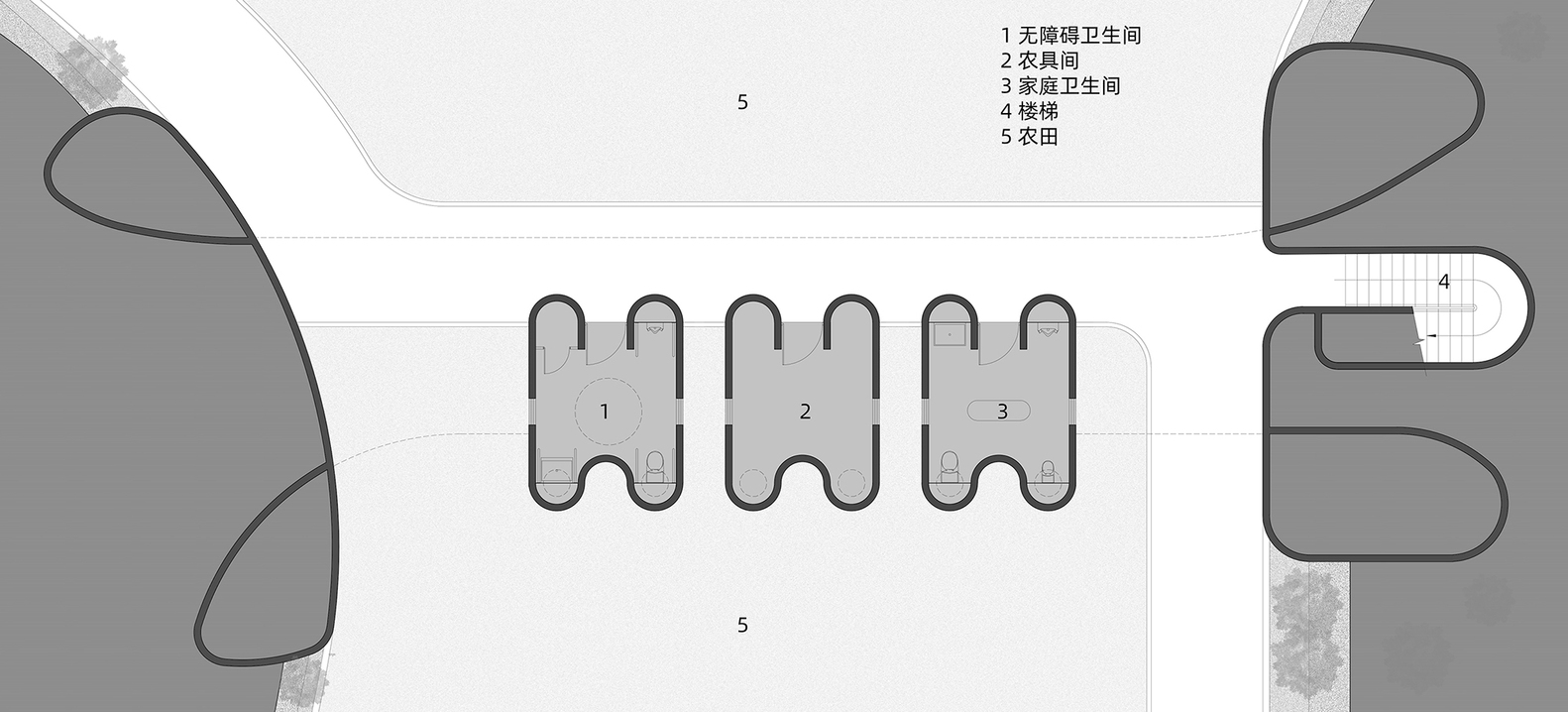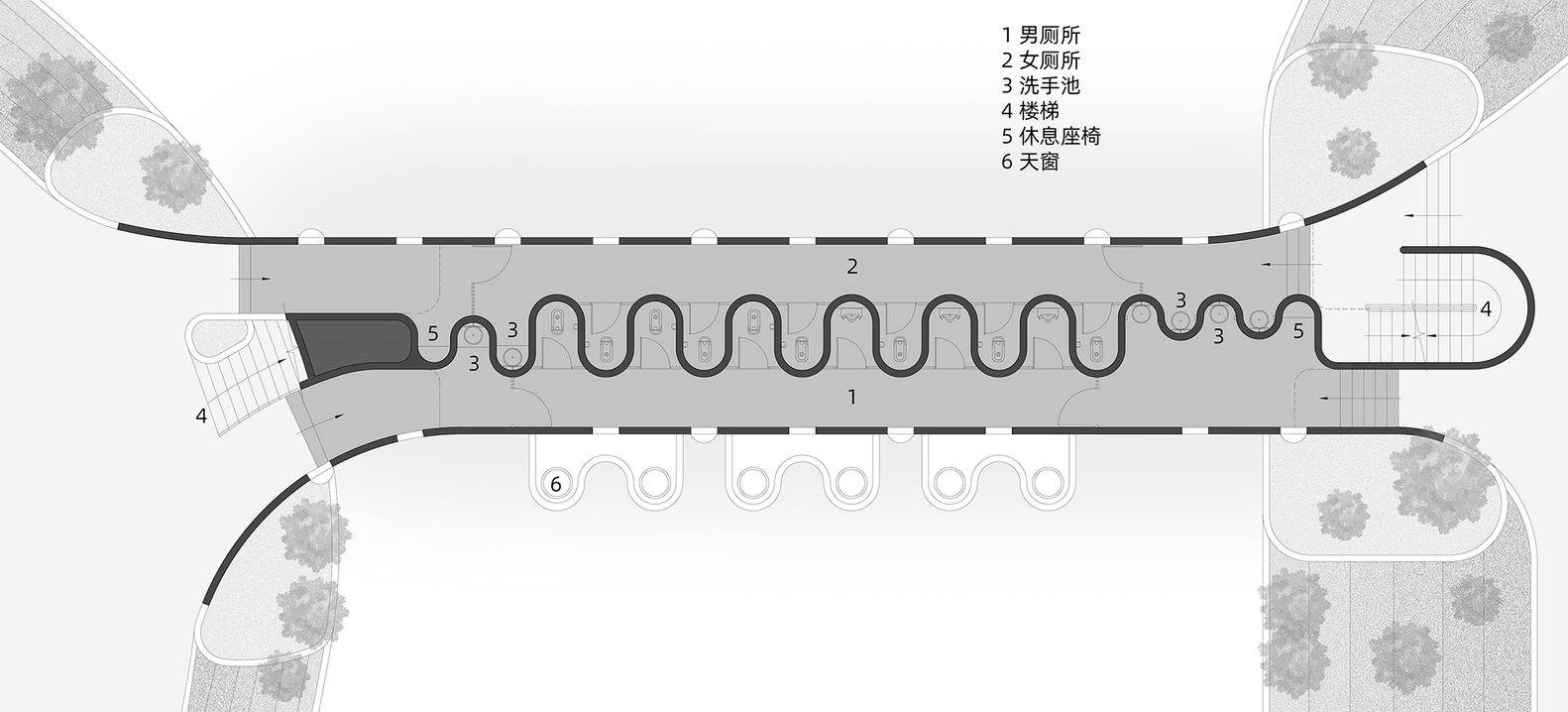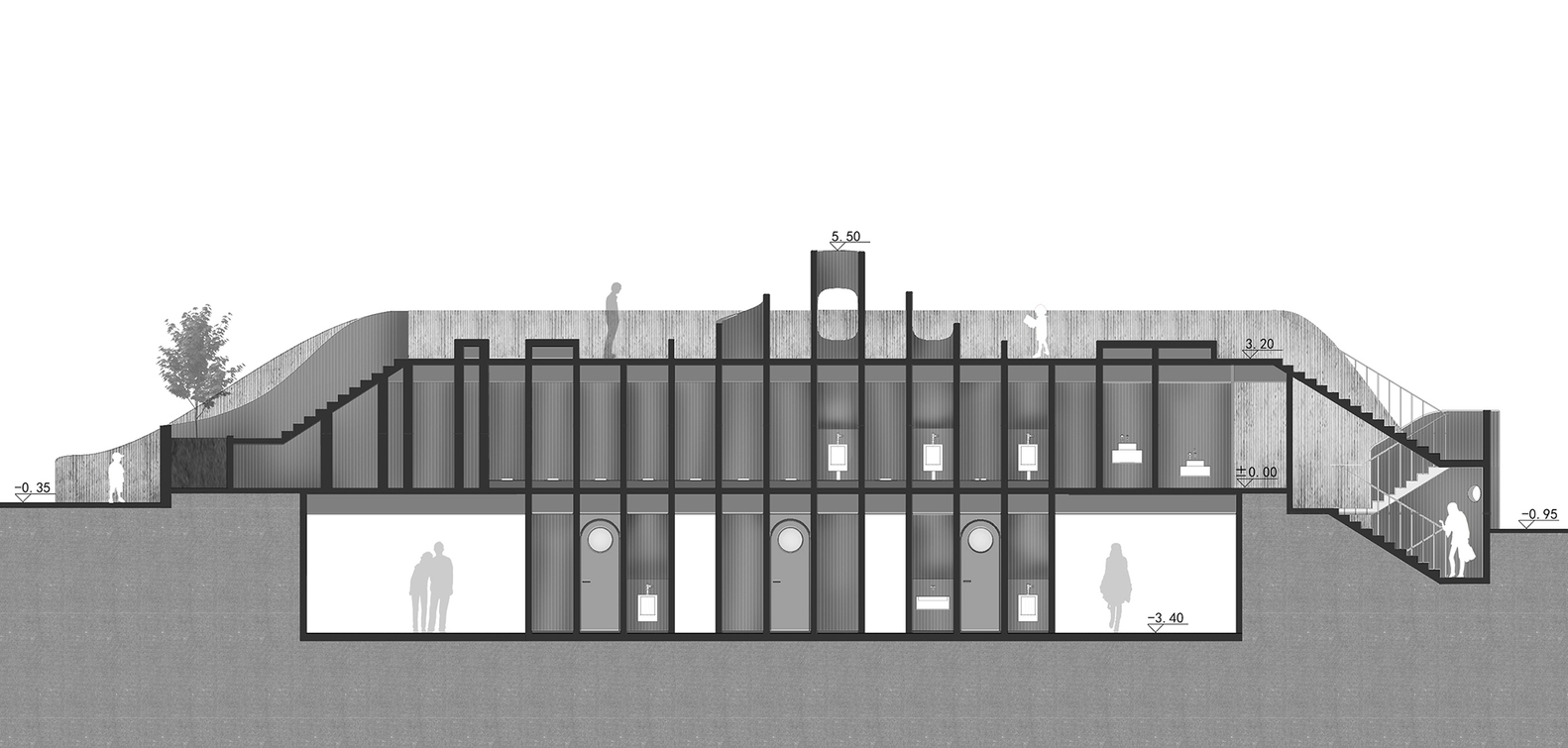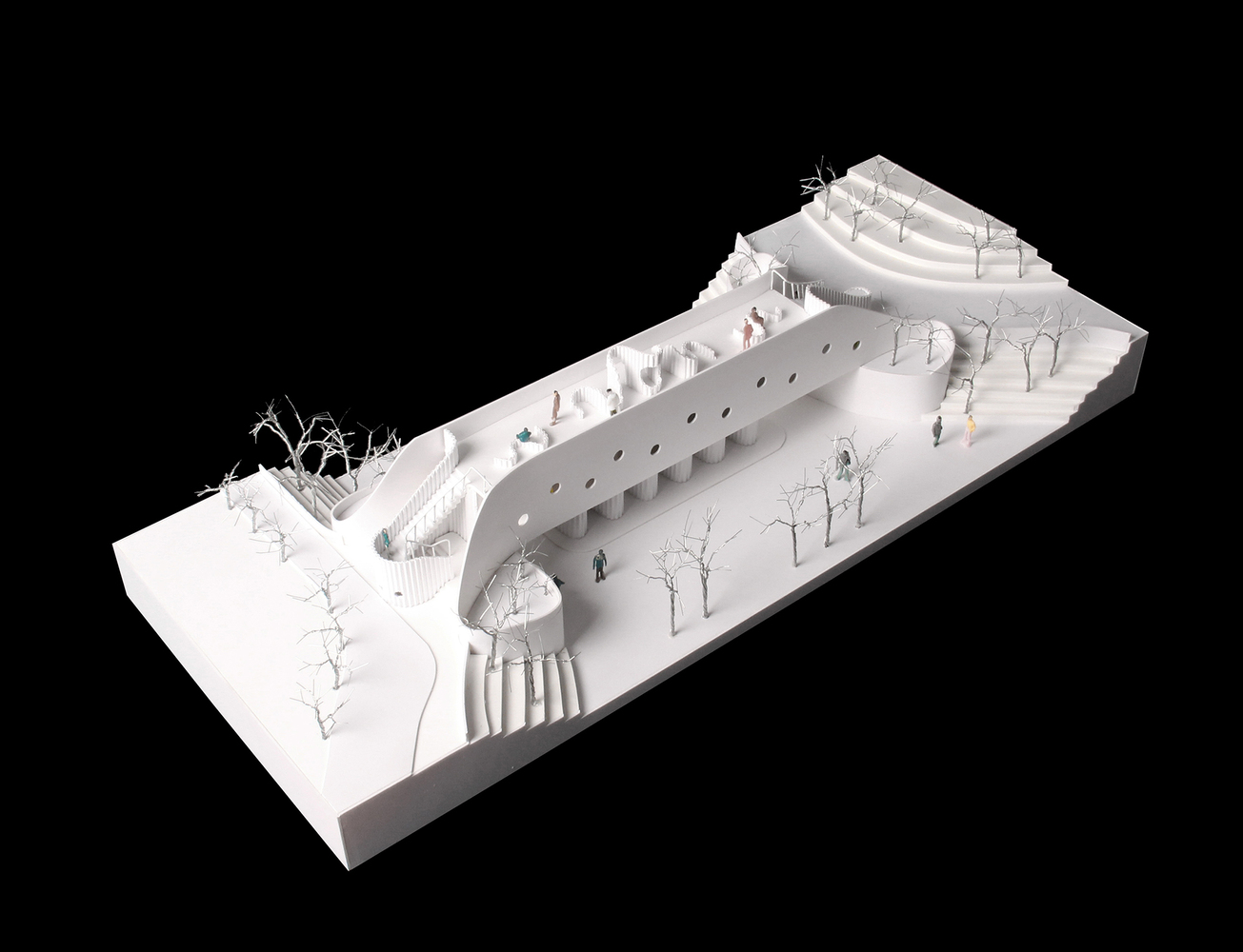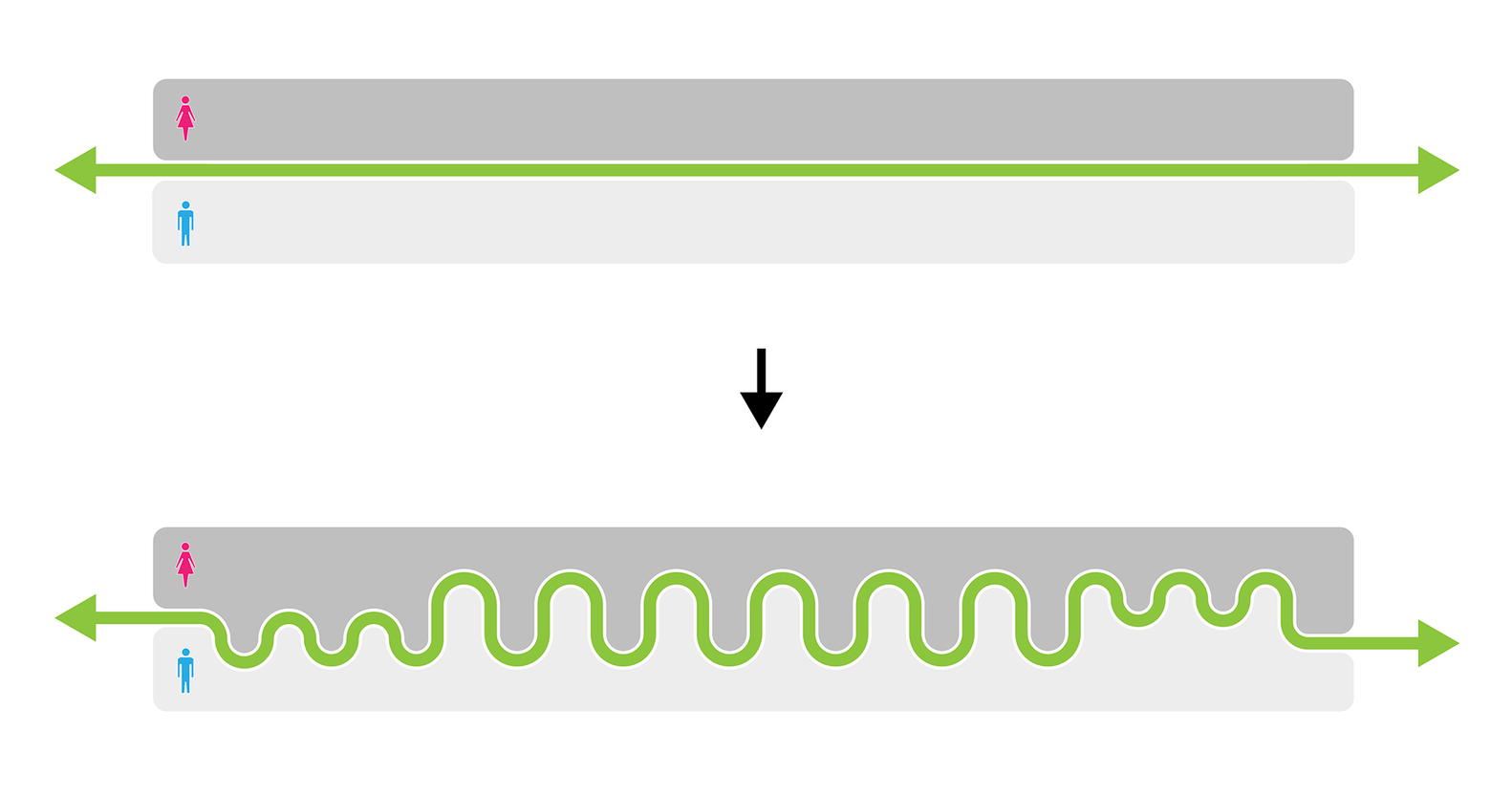Gaoqiao Village, nestled in the picturesque landscapes of Yibin, Sichuan Province, resides adjacent to the “Bridge-Toilet” or the Yichangxing Hundred Mile Green Bamboo Corridor. This idyllic hamlet, immortalized in Lin Huiyin’s evocative poem “A Small Village in November,” has radically transformed in recent years. With its focal point on bamboo culture and industry, it has blossomed into a renowned rural revitalization success story, proudly showcasing the harmonious merger of agriculture and tourism, with the iconic Bamboo Bridge and innovative Bridge-Toilet at its core.
The Bridge-Toilet’s Design Concept
In the grand tapestry of rural development, public facilities like commercial complexes, cultural centers, or hotels often claim the spotlight, relegating public toilets to the shadows. However, Gaoqiao Village has ingeniously leveraged these restroom facilities, weaving them seamlessly into the fabric of its agricultural landscape.
These restrooms transcend their primary purpose, catering to the physiological needs of farmers while doubling as spaces for agricultural respite, tool storage, and even agricultural tourism. The Bridge-Toilet’s design philosophy is firmly rooted in marrying technology with agriculture, employing locally appropriate ecological techniques.
Situated at the village entrance amidst lush farmland, this unique project bridges the gap between the daily lives of farmers and the requirements of visiting tourists. The roads flanked the site angle gracefully, creating a natural enclosure with fertile fields in between. A gentle 4-meter elevation change separates the street from the farmland.
The architectural vision here hinges on the concept of “connection and support,” skillfully interweaving two essential elements: the “bridge” and the “toilet.” Beyond enhancing the road infrastructure, the Bridge-Toilet’s innovative design seamlessly accommodates the needs of both locals and tourists. A self-supporting structural system emerges through the three-dimensional folding of structural walls, effectively bridging the road systems on both sides while embracing the surrounding farmland’s distinctive stance.
The upper segment of the bridge gracefully houses male and female toilets, ingeniously overcoming space limitations with a continuous folding wall. This arrangement not only facilitates the flow of pedestrians but also caters to functional demands. An enticing interplay of form and function unfolds inside the toilets, offering a dynamic and engaging experience.
Descending to the lower level reveals a family bathroom, an accessible restroom, and a storage facility for agricultural tools. The roof level connects seamlessly with the toilet level through side staircases. A continuous wall adorned with verdant tiles extends to the building’s rooftop, forming a scenic viewing platform. The outer walls bear a rustic allure, constructed from bamboo formwork concrete by local artisans, while the inner walls feature smooth, locally sourced green tiles, creating a striking juxtaposition.
Throughout the construction journey, local materials and the expertise of indigenous workers and bamboo artisans were diligently employed, reinforcing the mission of rural revitalization in China through on-site craftsmanship. In this harmony of architecture and agriculture, Gaoqiao Village stands as a shining example of how even the humblest of structures, the Bridge-Toilet, can contribute to the vibrant renewal of rural communities.
Project Info:
-
Architects: FMD
- Area: 180 m²
- Year: 2022
-
Photographs: Yuanrong Zhang, Maozhu Li
-
Manufacturers: Younana
-
Engineering: Shanghai Yuangui Architectural Structure Design Office
-
Landscape: FMD
-
Design Team: Wang Jianfeng, Nico Willy Leferink, Wang Rong
-
Consultants: Wen Qinhao
-
Clients: Yibin Lizhuang Town Gaoqiao Village Government
-
City: Yibin
-
Country: China
© Yuanrong Zhang
© Yuanrong Zhang
© Maozhu Li
© Yuanrong Zhang
© Yuanrong Zhang
© Yuanrong Zhang
© Yuanrong Zhang
Axo. © FMD
Plan - Site. © FMD
Plan. © FMD
Plan. © FMD
Section. © FMD
Model. © FMD
Diagram. © FMD
Diagram. © FMD


